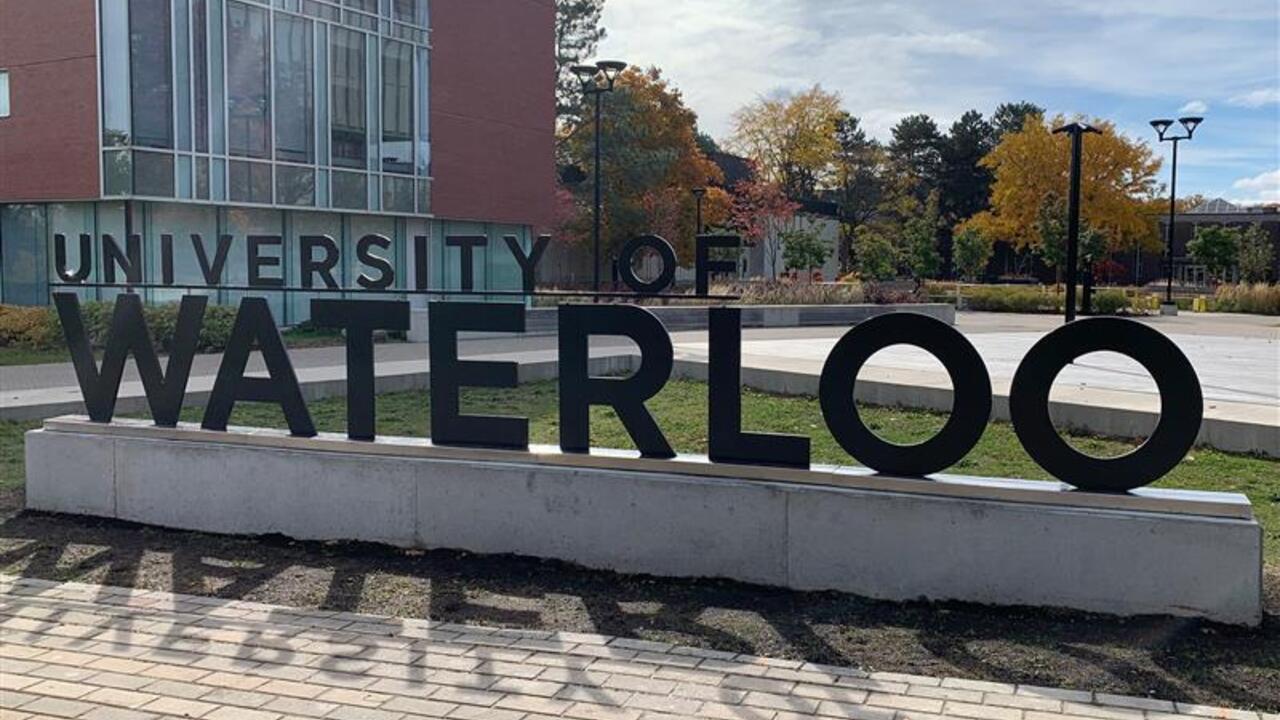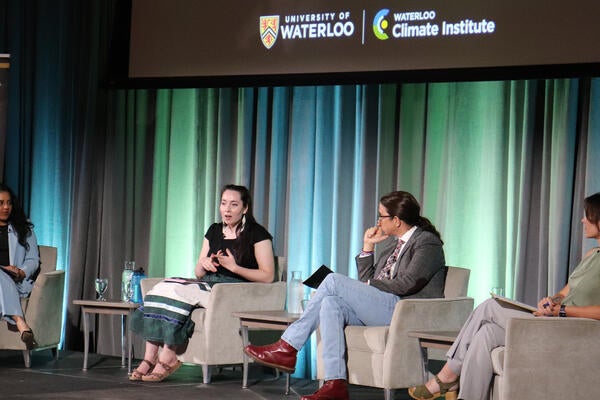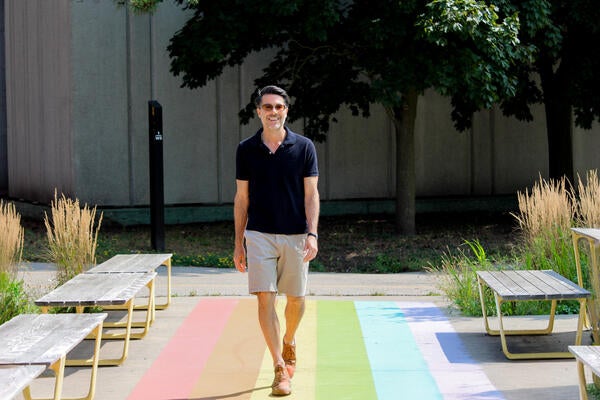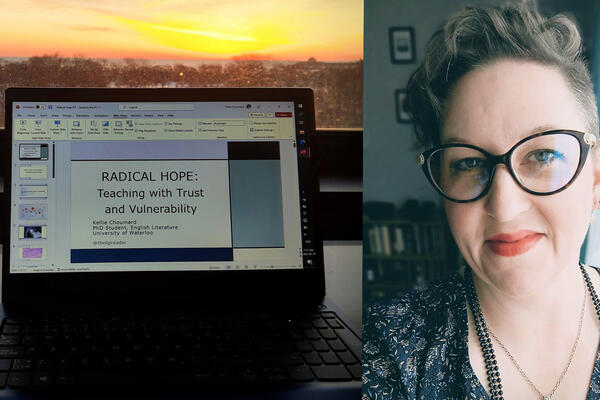
Tree of life to produce safe drinking water in the Philippines
An affordable biofiltration water treatment system is set to begin an 18-month trial in the summer of 2014 in rural areas of the Philippines.

An affordable biofiltration water treatment system is set to begin an 18-month trial in the summer of 2014 in rural areas of the Philippines.
By Media RelationsAn affordable biofiltration water treatment system that uses extracts from seeds of the Moringa plant – known locally as malunggay or the tree of life – is set to begin an 18-month trial in the summer of 2014 in rural areas of the Philippines.
Professor Sheree Pagsuyoin, a civil and environmental engineering professor at the University of Waterloo, leads this international project that is funded by Grand Challenges Canada. The organization has named Pagsuyoin, along with colleagues from George Washington University (USA) and De LaSalle University (Philippines), as Global Health Innovation Stars.
Currently in the development phase, the Barangay Water Project centres on creating a portable, scalable, and modular water filtration system that takes advantage of local materials such as volcanic ash, sand, gravel, and extracts from malunggay seeds.
As river or well water passes through the biofiltration system, particulates are filtered out while the extracts remove other contaminants such as coliform bacteria and metals. The system is envisioned to produce water that is safe for drinking and cooking.
More than clean water: Tree of life to promote health, nutrition and livelihood
“Apart from providing safe drinking water, our project is tied to improving the residents’ overall health and well-being,” added Professor Pagsuyoin. “The Philippine government has been instrumental in encouraging its residents to cultivate malunggay not only for its nutritional value, but also for its capability to stabilize soil.”
To encourage local residents to use the Barangay Water Project’s filtration system, the research team uses the native malunggay tree as a key component of the water filtration system. The tree has been called a “powerhouse of nutritional value" because it is a source of protein, vitamins and minerals, and a good source of monounsaturated fat.
Once proven successful, the technology can be adapted for either household or communal use. In homes, the system is operated as a gravity-based slow sand filter. For larger-scale uses, such as in communities or evacuation centres, small pumps can be incorporated into the design to increase the filtration process.
Addressing the challenges of clean water in the Philippines
Due to the Philippines’ topographic and geographic features, reliable centrally-treated water is not available in many rural areas of the country. In 2012, 85 per cent of the country’s 97 million population lived in rural areas. Without safe water access, many who live in barangays (Filipino for “villages”) consume untreated water collected from open water sources such as rivers and streams, or from unprotected wells.
On an ongoing basis, many residents cannot afford the cost of fuel wood (a popular household fuel) needed to boil water. Dry wood can also be scarce during the country’s five-month long monsoon season. Although chlorination is another option, residents dislike the taste of residual chlorine in the water. Bottled water is also expensive for many rural Filipinos. In the project site of Northern Samar, 44 per cent of households live below the poverty line, earning less than $5 per day.
Without access to safe water, many rural households in the Philippines risk contracting water-borne diseases such as diarrhoea, leptospirosis and typhoid; this health threat increases during floods and other disasters. Diarrhoea is one of the leading causes of morbidity and mortality in the Philippines.
Ultimately the Barangay Water Project has the potential to address these problems by effectively providing safe and affordable drinking water for families, communities and evacuation centres.
“Grand Challenges Canada shares and supports our vision of providing access to safe water in poor communities through innovative approaches,” said Professor Pagsuyoin. “This funding allows us to bring a low-cost water treatment technology in rural areas of the Philippines, while making a real, positive, impact to the day-to-day lives of residents these communities.”
Background
Grand Challenges Canada’s developed the Stars in Global Health program to support innovative ideas with widespread impact in Canada and in low- and middle-income countries. The program recognizes projects and ideas that use scientific/technical, social and business innovation to address some of the most pressing global health challenges.
Additional information about the Barangay Water Project can be found on the Grand Challenges website. Those interested in the project are encouraged to follow @BarangayWater on Twitter.
In just half a century, the University of Waterloo, located at the heart of Canada's technology hub, has become one of Canada's leading comprehensive universities with 35,000 full- and part-time students in undergraduate and graduate programs. Waterloo, as home to the world's largest post-secondary co-operative education program, embraces its connections to the world and encourages enterprising partnerships in learning, research and discovery. In the next decade, the university is committed to building a better future for Canada and the world by championing innovation and collaboration to create solutions relevant to the needs of today and tomorrow. For more information about Waterloo, please visit www.uwaterloo.ca.
-30-
Nick Manning
University of Waterloo
519-888-4451
226-929-7627
www.uwaterloo.ca/news
@uWaterlooNews
Attention broadcasters: Waterloo has facilities to provide broadcast quality audio and video feeds with a double-ender studio. Please contact us to book.

Read more
TRuST Scholarly Network hosts conversation on charting a course through climate misinformation to promote informed climate action

Read more
Brian Orend brings a philosopher’s perspective on happiness, navigating the challenges of chronic illness through connection to ourselves and others

Read more
After a breast cancer diagnosis during the pandemic, Kellie Chouinard turned to social media for support. Learn how this experience shaped her groundbreaking research.
The University of Waterloo acknowledges that much of our work takes place on the traditional territory of the Neutral, Anishinaabeg, and Haudenosaunee peoples. Our main campus is situated on the Haldimand Tract, the land granted to the Six Nations that includes six miles on each side of the Grand River. Our active work toward reconciliation takes place across our campuses through research, learning, teaching, and community building, and is co-ordinated within the Office of Indigenous Relations.